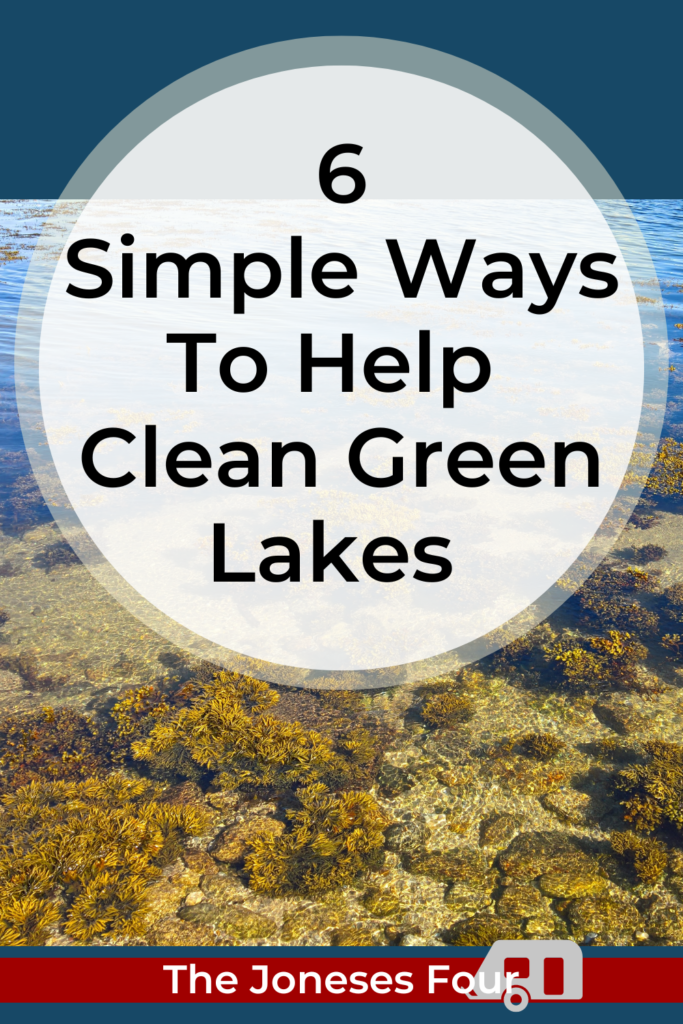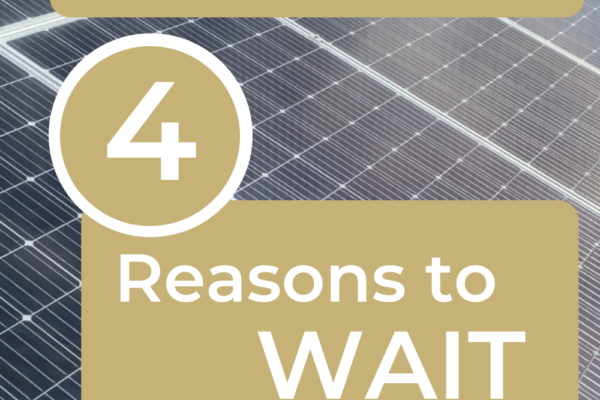We love living in Wisconsin. It has beautiful, rolling hills, four seasons, abundant cultural & historical locations, and plentiful natural, recreational places — including lakes and rivers. Unfortunately, many of the lakes and rivers in our area have been in a steady decline over the past couple of decades. Years of erosion, runoff, development, and commercial agricultural practices have made these bodies of water green and unswimmable.
The lake by our house is one of these green lakes. It has dangerously high levels of toxic blue algae— and every year it seems to start earlier. Because of this, every year, we hear a sad story about someone’s dog dying due to blue algae poisoning after an unknowing owner let them play in it.
It’s unfortunate to live so close to such beauty and then be unable to enjoy it. So what can you do to slow or even reverse the contamination?
Here are four suggestions, as approved by our regional DNR invasive species specialist.*

1. Don’t spray
First and foremost, turf grass is not native and dandelions are not the enemy.
If you need to read that again, then please do so.
On the contrary, the chemicals sprayed on your yard to maintain that few inches of bladed green are harming your community and your local wildlife far more than some benign, yellow flowers. If you’re worried about creeping Charlie choking out your garden, then participate in the verb GARDEN and pull it yourself.
If you’re a HOA member or are a renter, try to educate your council members or landlord on the harms of fertilizers and pesticides. If you’re able, offer to help with projects that would increase pollinator populations and reduce runoff from the property (see #3). To help in this venture, seek out resources from your local DNR office, nature reserves, or institutions of higher education for supportive documentation .
2. Help keep the waterways clean
This can be as simple as:
- Don’t litter.
- Not pushing yard debris into the street (or educating your neighbor with the leaf blower).
- Monitoring your neighborhood’s storm sewers to make sure that they’re free of debris.
- Cleaning up the street after unloading a trailer of mulch.
Those pieces of wood and leaf debris may seem benign, but when they decompose in the lake, they create a nutrient-rich sludge that feeds the growing algae problems.
3. Build a rain garden
I cannot express how much I love our [super beautiful, low-maintenance] rain gardens. Rain gardens are an inexpensive and beautiful way to protect not only your local lakes, but your home, as well.
Native plants are amazing and they have magical, hard-working root structures that can — and do — help with this ultimate goal in the best and most beautiful way possible.
Read our full post on this simple, inexpensive project here.
Indirect Ways
There are other, less direct ways to help keep your waterways clean, as well. They all involve “greening” up your lifestyle a bit and educating yourself — and others — on how people impact the planet.
4. Diet
A big part of green lakes is agricultural runoff. We vote with our dollars and eating a more sustainable diet can help tremendously. Eating more sustainably can look a lot of ways. It also doesn’t have to be all or nothing; it can be as much or little as fits into your lifestyle:
- Plant-based diet (vegan or vegetarian)
- Meat fed a diet of rotational crops
- Participating in meatless Mondays
- Buying locally sourced, seasonal produce when available
5. Vote!
Supporting candidates that believe in environmental issues will absolutely help keep our waterways cleaner. When there’s support, there’s money and initiatives. So get out and vote!
6. Educate others
If it’s important to you, it’s probably important to others. A lot of times, though, people are overwhelmed with life or too busy to think about it. Just having you share your knowledge with a neighbor about a yard project or chatting with a stranger at a friendly shindig can be enough to get the ball rolling. If you’re feeling especially motivated by it, become civically engaged yourself!

And we promise that you’ll benefit in the process, as well.
Inspire others by sharing your story in the comments below!
—Melissa, The Joneses Four
* Our regional DNR invasive species specialist is responsible for overseeing the collection and monitoring of blue algae and other aquatic invasive species.





One thought on “ 6 Simple Ways To Help Clean Green Lakes”